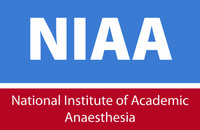Academic Training FAQs

We have put together some FAQs based on questions that we are regularly asked by trainees at events such as the AAGBI's GAT Conference.
If you have any other questions that you would like to see answered here, please do get in touch and we will do our best to answer them!
Q. How do I get ethical approval for a research study?
- Contact your local research ethics committee (REC) to discuss the
application process in detail. You can find your local committee by searching
the website at:
National Research Ethics Service
- Read the application form carefully and contact your local REC if you
have any queries as this will help to speed up the application process
- We recommend that you attend the committee meeting at which your
application will be discussed, so that you can answer any questions that might arise regarding your application there and then and avoid delays. If you are a trainee, it is also an idea to invite your academic advisor
- If you are producing any information for patients, make sure that you
get feedback from patients and that you record this.
Additional Advice
- Speak to experienced researchers in your hospital/deanery e.g. clinical academics, research nurses. They will have filled out many REC forms in the past and can provide invaluable advice about how to fill in forms, what crucial pieces of information are needed and what questions are likely to arise at an ethics committee meeting
- Read the advice on the website: National Research Ethics Service (NRES)
- Check that your study is research and not audit, service evaluation etc. See the NRES leaflet: Defining Research. If unsure, check with your local R&D Office. The process for obtaining ethical approval for non-research studies is much quicker and less complex
- All applications are online via the Integrated Research Application System (IRAS), accessed via NRES website
- Expect full ethical approval to be a lengthy process, so plan well in advance
Q. How can I find out about new research fellowship opportunities (supporting projects that have already been established?)
- Some opportunities are advertised in the BMJ, look under academic appointments as well as anaesthesia/ICM jobs.
- Think about the area of research you are interested in and approach heads of research groups directly to express your interest. They may be able to tell you if there are likely to be any research fellowships coming up.
- Some schools of anaesthesia offer one year research fellow jobs either as in-programme posts offered to local trainees or open to all as out of programme research. Doing a year in the first instance can be a good indication of whether research is for you and can give you time to develop your research idea, collect pilot data etc. prior to applying for the full funding.
Q. How can I find out about new research fellowship opportunities (for my own project?)
- National funding bodies: The Wellcome Trust and Medical Research Council (MRC) both offer PhD funding for clinicians 2-3 times per year. Check their websites for closing dates and for the electronic application forms. Applying is a lengthy process, so leave plenty of time
- BJA/RCoA Research Fellowship: This is administered through the NIAA. Keep an eye on the NIAA website
- Intensive Care Society Young Investigator Award. Can provide start-up funds for a project
- Charities specific to your area of research e.g. Cancer Research UK, Alzheimer's Society. If you are investigating a specific disease there may be funding available from related charities
- Local funding. Some hospitals/deaneries have charitable funds that may fund research projects, so investigate your local area
- Military trainees may be able to access military research funding, especially if the research relates to conflict anaesthesia/critical care.
Q. How can I obtain sponsorship for my PhD studentship?
- Generally the options are obtaining fellowship funding e.g. from the Wellcome Trust that covers the costs for the whole of your PhD or accessing smaller grants from a range of sources that together will cover the whole cost
- Through the NIAA i.e. BJA PhD Studentship (NB. this is not an annual award)
Q. General hints and tips for trainees who are interested in research
- Speak to other trainees and consultants in your region who have experience of medical research to get some honest advice about what research is like.
Please let us know if there are any other hints and tips that you think might be useful to trainees in addition to the information on this page.







